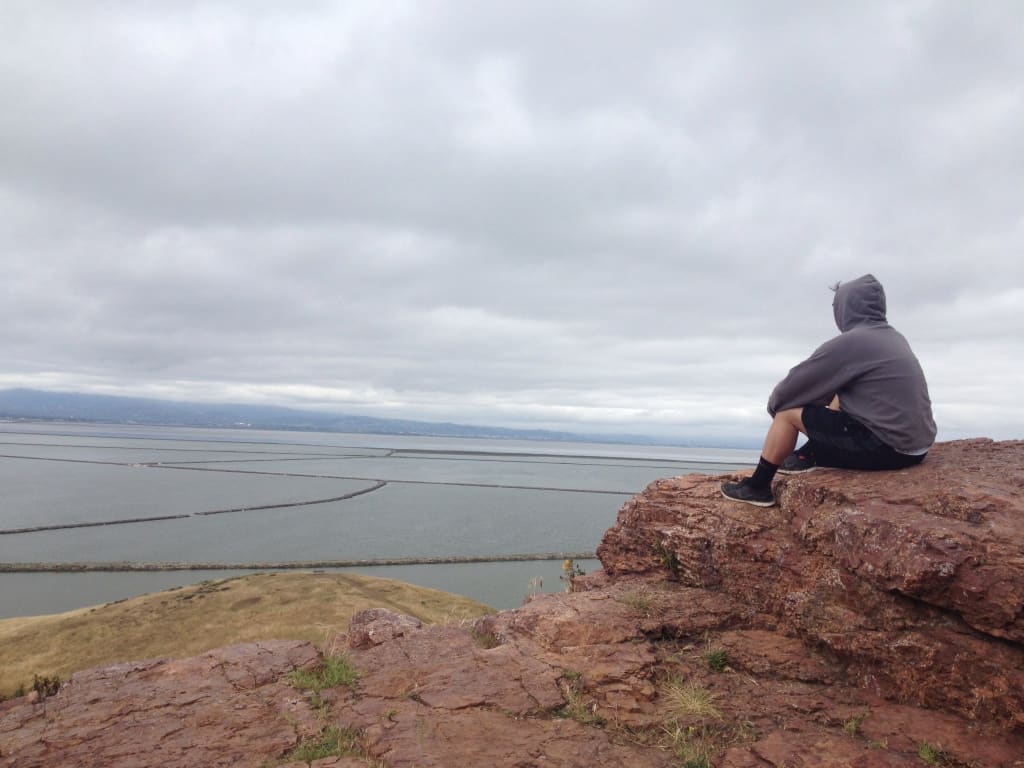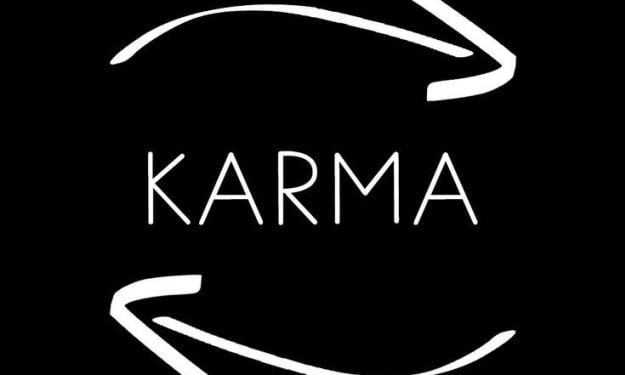Tourette's: Growing up with the Disorder I Never Knew I Had
Can you technically just not scratch an itch? Yes, but it's extremely uncomfortable.

In the third grade, my class and I were eating lunch in the cafeteria. One of my classmates, John, sat at the table and brought out a large bag of Airheads: The holy grail of candies to a bunch of nine-year-olds. The craziest part is that he was giving pieces of them away to everyone at the table.
Well, everyone that he thought deserved one of his Airheads.
As he was passing them around, I continued eating my lunch in silence so that I was making it obvious that I was anxiously waiting for him to give me one of his candies. Eventually, John had given out one Airhead to several of my classmates. The thing was, I was one of the only kids that did not receive one. When one of my classmates asked, "Wait, what about Jonathan?" I'll admit my spirits did lift a bit.
But John, the smug, scrawny kid undeserving of the candy that was bestowed upon him, responded, "No not him. He hums to himself all the time. He's weird."
Let me make one thing clear: I am not bitter about that whole event. I can buy my own Airheads whenever I want now and—although he moved away a couple years later—I can confidently assume that I grew up to be much better looking than John is now. But while the event itself no longer bothers me, what he said about me stuck with me for a while.
Almost a year ago, I was officially diagnosed with Tourette Syndrome. I had already figured that much out by the time I was nineteen, but hearing it from a medical professional finally made it seem legit. Before that, meeting with my neurologist, I read up on everything there is to know about Tourette Syndrome. I read that it's a neurological disorder that causes someone to exhibit different motor and verbal tics. I read that all the symptoms of Tourette's are symptoms I have experienced since I was a child. It felt like I was reading a history of my upbringing, and it was incredibly spot-on.
While I was relieved to be diagnosed, I also felt frustrated for several reasons. I was frustrated that I was not diagnosed as a child and that I had to go twenty-one years thinking I wasn't normal. I was frustrated because I had to grow up hearing people call me "weird" and "annoying" and other juvenile words that actually felt accurate at the time because I didn't know what the hell was wrong with me. I was frustrated because, even after being diagnosed, the people who pointed out my tics never even apologized for it. I was relieved to finally label this thing, but you can't blame me for being appalled at the same time.
Having Tourette's is incredibly uncomfortable. When people ask me if I can just hold in my tics, I tell them yes. Technically. I mean, do I want to make fake phone vibrating noises, jerk my head back randomly, and squint aggressively all the time? Of course not. To this day, I try and hold these tics in as much as I can. But holding in a tic is like trying to ignore an itch. Can you technically just not scratch an itch? Yes, but it's extremely uncomfortable. And the more you try not to scratch it, the worse it feels. All your attention is on that itch, and it will not go away until you scratch it.
That's what it's like to have tics. When I feel like I have to tic, I just do it because trying not to will drive me insane. I had to realize that holding in my tics was really only for the courtesy of the people around me. And I also had to realize that I shouldn't care for the courtesy of the people around me if it's going to make me feel that way. People understand once I explain it anyway, so there's no harm done in the end.
The first time I remember having tics was when I was about six or seven. My family and I were watching TV in the living room, and I started making short grunting noises and longer hums in between. My family got annoyed, I guess understandably, and continually told me to cut it out. But I couldn't, and they continued to tell me to stop.
This happened everywhere I went. School was full of kids telling me there was something wrong with me, and I had no idea what to say to them because I knew deep down there really was something wrong with me. Going to movie theaters was incredibly difficult because I felt like I had to hold in all of my ticks for two hours or more or else the people around me would get mad. In fact, anywhere I went that required me to be quiet for an extended period of time was absolute torture for me. I really hoped this wouldn't be the case for the rest of my life.
For a while, it actually felt like it was going away. Most people with Tourette Syndrome begin showing signs of tics at a young age, and it usually goes away by the time the person enters their early twenties. For me, I felt like I had a little more control over it in my teenage years. Not many people seemed to notice my tics anymore, and I felt like whatever I had was finally starting to die down.
Unfortunately, in my later teens, the tics came back even more intensely. I developed new tics and I finally became desperate to find out what was wrong with me.
It wasn't until—at age 19—a coworker noticed my tics one day and asked me if I had Tourette's. I was baffled because the only time I had heard of Tourette's was from the video from years ago of the guy who would yell profanity all the time. For those of you who remember, he was known as "Tourette's Guy" and many people found that video hilarious. So you can imagine how confused I was when my coworker asked me this.
He continued to explain that he has a friend with Tourette's and explained to me about tics and whatnot. I remember feeling a lightbulb go off in my head. It finally hit me that this might actually be the answer to why this was all happening to me.
After that encounter with my coworker, I just started telling people I have Tourette's whenever they asked me about my tics. I didn't exactly know if that was true or not, but it felt a lot better than being unable to explain them. But, eventually, just assuming I had Tourette's didn't feel like enough anymore, so I decided to finally seek medical help.
This leads us back to a year ago: the day I was officially diagnosed with Tourette Syndrome. I had no idea how to go about being diagnosed with Tourette's, so I started off by scheduling a regular checkup with my doctor. From there, he referred me to a neurologist, who ended up being the one to diagnose me.
She told me that I will most likely have Tourette's for the rest of my life, since I am already in my 20s. And, honestly, I feel fine about that. I don't feel embarrassed or self-conscious about having these tics because I know why I do them now. For over twenty years, I had to just wonder what was wrong with me. Those were the years of my life that I was ashamed to be this way. But now that I have a legitimate reason for my tics, I don't feel like I have anything to hide anymore.
I feel great about myself, and that's not something I felt like I could say for the longest time.
And John, if you are somehow reading this, I just want you to know that there are no hard feelings. But I will fight you if I see you again, so watch your back, kid.
About the Creator
Jonathan Miciano
There's a story here for everyone






Comments
There are no comments for this story
Be the first to respond and start the conversation.